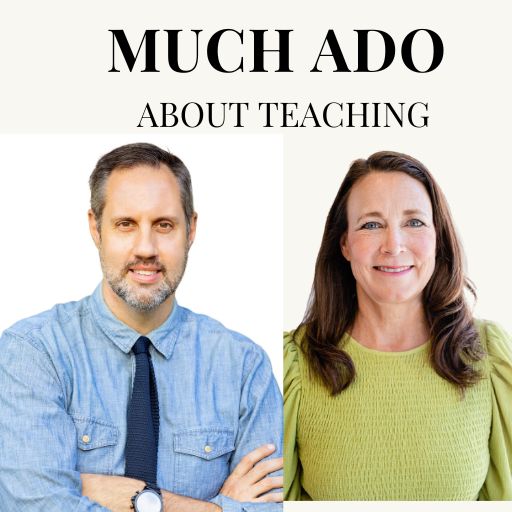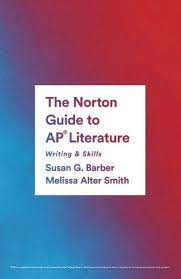Names and numbers.
I say that to my students over and over again — their college application is just a series of names and numbers.
Names
- Names of courses taken
- Names of clubs and activities
- Names of sports they played
Numbers
- GPA
- Class rank
- SAT/ACT scores
- State test scores
And while all those names and numbers will be a record of what they have done in high school, it will not show who they are.
Their only chance to put a human touch on an impersonal process is to reveal their best qualities and characteristics in the essay.
AND THAT FREAKS THEM OUT!
I have had some students come in tears.
Some came with an empty page and a blank face.
Others had the seed of an idea that needed fertilizing.
Some were just looking for a final edit.
Rather than see the opportunity to stand out and distinguish themselves from a pool of applicants, many panic. They fear they lack life experience, they struggle to tell a story, and they regret not starting earlier.
I can help. I have some tips that can make the process easier and better. I’ve read well over 500 college essays over the years. Year after year patterns emerged. I saw what worked and what should be avoided.
The Biggest College Essay Mistakes and How to Fix Them
The Five Cliches
What’s Wrong: I read dozens of these essays each year — and they are all the same.
- My sports team won the championship — I love my teammates.
- My grandparent had cancer — Life is fragile.
- My parents divorced — I’m now independent.
- I traveled to a disadvantaged area — boy, I’m fortunate and no longer take privilege for granted.
- I suffered a sports injury — The medical field transformed my body.
Granted, I’m doing a gross overgeneralization and reducing these topics to a sound bite. But that’s the point. I’ve read so many of these essays over the years that they all become boring and predictable.
Make it Better: The only way to stand out with those topics is to be original. Don’t start by describing the winning goal in the league championship, begin with a small detail like the color of your cleat laces. Don’t tell me how much your grandpa suffered, show me what he looked like when he came to your science fair ceremony in middle school. Don’t tell me all the bad things your mom and dad used to say to each other, show me the moment when you realized tour father’s breath was awful. Don’t tell me about the pop in your ankle, show me the DSW Shoe Warehouse aisles with all the open-toed sandals that you could no longer buy.
Please, don’t start with the obvious. Be original.
The Big Words Fallacy
What’s Wrong: I have seen too many students make the terrible assumption that colleges want big words because big words are an indication of intelligence. These essays sound like they were cribbed from the thesaurus with sentences like, I traversed my current state of adolescent bliss to the illuminating confines of the Guatemalan destitute.
Here’s the danger of writing sentences like that — it comes off as inauthentic and insecure. It says to a college admissions officer, Hey, I’m not that confident in my own voice or who I really am, so I’m going to the thesaurus to say the things and use words that I think will impress you.
Make it Better: Write as you talk. Application readers see right through the big words and overly descriptive sentences.
Students have been raised on a steady diet of expository writing. Its purpose is different — it is meant to inform and, consequently, is more formal. Narratives are meant to illuminate through the art of story telling. They include dialogue, action, and thematic purpose. Students are not used to writing this way because they don’t do enough of it. They need colorful writing, but they struggle to find their voice.
Have them tell their story to you out loud. Then tell them to write what they just said.
Mount Everest Syndrome
What’s Wrong: Many students feel they have nothing to write about because they have led the typical teenage life. In order to apply to college they feel they need to have climbed Mount Everest or sent care packages to orphans in a war-torn African village. As Brianna Crowley shared with me, “they feel pressured to find the most dramatic thing that’s ever happened to them and write about how that made them a better person. They don’t realize that sometimes the most revealing things about us are those small, seemingly mundane aspects of our life, perspective, or experiences that can be the most revealing or profound. No one has to die or almost die for us to have rich, compelling stories about our experiences and what makes us unique.”
Make it Better: In his poem, “Who Am I” Carl Sandburg writes, “My name is Truth and I am the most elusive captive in the universe.” Each student is a series of infinite truths waiting to be rescued the recesses of their mind.
Some truths reveal themselves in the most dramatic moments. But perceptive and reflective students can look back on the elusive moments of their life and see a truth that was speaking to them when they did not even know it. Only in the maturity of adolescence can they look back and realize its profound voice. There are a bunch of these types of essay in my free giveaway below. Those are the essays that speak to an admission counselor’s soul.
Activity Record as an Essay
What’s Wrong: I can look at your activity record and see that you were in the school play in 9th, 10th and 11th grade. I don’t need a three paragraph essay summarizing each year’s drama production. It doesn’t have to be drama. It could be robotics, or sports, or service club. But the problem is, when you do a My History in ________ essay, it reveals little more than what your activity record already shows. It is superficial, skimming along the surface of the experience. It does not allow you to develop yourself or the other people in your narrative. Action gets summarized. Dialogue is non-existent. And the essay plods to a boring conclusion that was predictable from the first sentence.
Make it Better: Don’t give me the telescopic view and all the constellations in the sky. Put your meaningful activity under the microscope. Zoom in so I see the all those fascinating interdependent cells that are hidden to the naked eye. Tell me what the costumes smelled like. Capture the timidity in Charlie’s voice when he asked out Claire backstage when no one was looking except you. Make me feel the spotlight burning into your retinas at 9:30pm on the Thursday of Hell Week with the show only three days away. Follow the age-old college essay axiom — show me, don’t tell me. A few sensory details go a long way.
Here are a few more college essay pointers compiled from teachers around the country:
- Stay away from the 3Ds — drugs, death, and divorce. These essays tend to highlight the shortcoming of others rather than your own strengths
- Avoid using 2nd person pronouns (i.e., you should keep trying hard …. etc.)
- Some of the weaker essays include a “step-by-step” explanation of their Eagle Scout project, Girl Scout project, etc. that uncovers very little about the student.
- Avoid overusing words/phrases: I love… my passion is… I’m passionate about …
- Some essays never answer the most-important question: what does this say about YOU?”
- Many essays that tackle ongoing adversities – health, mental health, dealing with bad teachers, sexual abuse — reveal little about why the student would be a good fit for a college.
- The writing style is just too vague. No clear details or images make the essay feel cold and distant.
- They fall into cliche at the end instead of allowing an organic closure.













3 comments
Ron Shapiro
As a now retired English teacher with 45 years of experience in the classroom, your articles, and those with Susan Barber, are chock full of wisdom and understanding of best practices for students. I applaud your efforts to convey your expertise and practical ideas to a wide audience. And though I am no longer teaching, quite a few of your ideas have made me say, “If I’d thought of this activity back then, I believe it would have been a welcome addition to my own repertoire.”
Keep up the stellar work!
Deirdre
I’m not seeing the “free giveaway” with the example essays. Am I missing it or is it missing? TIA!
דירות דיסקרטיות ברמת גן
Im excited to discover this site. I need to to thank you for your time for this fantastic read!! I definitely liked every little bit of it and I have you book-marked to check out new things on your website.